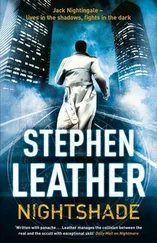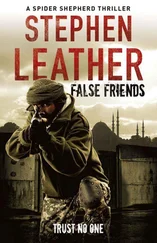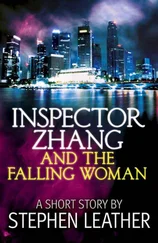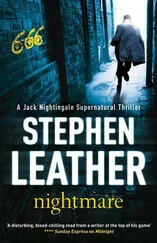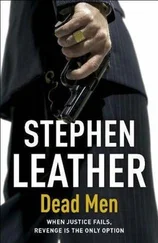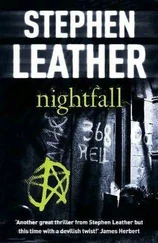‘They’re in quite a hurry,’ he said, ‘which is probably not good news for us. I think we’ve got to assume we’ve been spotted.’ He looked at Scouse, who was pale with fatigue. ‘Normally I’d opt for doing the unexpected, which would be to turn round and back-track, on the assumption that the last place they would be likely to search for us is the one where they know we’ve already been, but you’re looking pretty knackered, mate, so I’m thinking that the best thing is to keep going. Once we’ve rounded the shoulder of the ridge, we’ll be into much easier terrain for a while, with only a short climb up to the Inca Road on the far side of the valley. I doubt very much if it’s wide enough for vehicles - the Incas never invented the wheel so they didn’t have carts or wagons or anything like that, so they’d no reason to build their roads wider than a couple of men or a man with a llama would need. And there’s no other road in that valley, so if they’re going to come after us, it will only be on foot, which will give us a bit more of a chance. You all right? Then let’s go.’
They moved on up the slope, but Scouse was now struggling so badly that their pace was agonisingly slow. Two hours had passed by the time they at last reached the shoulder of the ridge and were able to look down on to the terrain they now had to cross. It was more of a plateau than a valley, a narrow span of roughly level ground sandwiched between two towering and brutally steep mountain ridges. Beyond the far one, ranks of jagged peaks marched away to the far northern horizon, including the mighty summit of Huayna Potosí, soaring over six thousand metres into the sky.
There was no river running through the plateau, just a series of glacial lakes, separated by patches of sparse, frost-bitten grassland, and expanses of glittering white snowfields, the ice crystals in their frozen surface blindingly white in the glare of the sun. The lake water was a vivid aqua green, coloured by the tiny flakes of mica ground from the bedrock by the glacier that spilled through a break in the north wall of the mountains. Its meltwater fed the lakes and their surface was so still, undisturbed for the moment by even the gentlest breeze, that it was difficult to tell where the rocks ended and the water began, so perfect were the reflections in it.
In different circumstances Harper might have sat down and spent an hour just soaking up the beauty of the scene, but this was no time to be admiring natural wonders and he barely gave the scenery a glance before first raking the entire length of the plateau for any sign of figures or movement, and then, finding none, turning his attention to the far side. He found what he was looking for two-thirds of the way up the ridge, a thin, wavering line, extending from east to west along it, following the contours of the ridge but too straight and level to be natural. ‘That’s it,’ he said to Scouse, who had slumped down to rest. ‘The Inca Road.’
‘Is it safe for us to use?’
Harper shrugged. ‘Normally I’d avoid any trail or road, but I think using it is a pretty low risk in these circumstances. You’re already pretty much done in, but once we get to the trail it’ll give us pretty level and easy going, so it’ll be a lot less taxing for you and we should be able to make much faster time than picking our way over the rocks or around the lakes and across the snowfields on the plateau. Although there’s still a risk of the sicarios spotting us, we’ll be moving farther and faster than they would probably expect, so with luck we may out-run them. Anyway, it’s our best option,’ he said, seeing Scouse’s dubious expression. ‘So the only question is whether you’ve got enough strength left to make it up that ridge?’
Scouse nodded and stood up. ‘Just watch me.’
For all his bravado, their progress across the plateau and up the rock-strewn mountainside beyond was even more painfully slow and by the time he hauled himself the last few metres onto the edge of the Inca Road, Scouse was grey-faced with exhaustion. Harper scanned up and down the track for signs of potential danger, and then checked Scouse’s pulse. He frowned as he felt its shallow, rapid and irregular beat beneath his fingertips. ‘Talk to me,’ he said. ‘Don’t be brave, just tell me how you’re feeling.’
‘I’m all right,’ Scouse said. ‘Tired obviously, and a bit light-headed, that’s all. And maybe a little bit nauseous as well.’ As he said it, he began dry-heaving. ‘Honestly, I’ll be all right,’ he said again, but Harper could hear that he was slurring his words slightly and a few moments later, he was dry-heaving again.
‘I’m not sure you will,’ Harper said. ‘It may just be exhaustion, but it may also be altitude sickness and if it is, the only short-term remedy that will work is to get you away from the altitude that’s causing it, which means getting you down from the mountains.’
‘We can’t do that.’
‘We may have no choice.’
Harper helped Scouse along the trail for another hundred yards, supporting him with an arm round his shoulders as he stumbled his way onwards. He stopped by a group of boulders at the edge of the track and sat Scouse down. Harper refilled their water-bottles from a half-frozen spring trickling out from under the rocks and handed one to him. ‘Drink this, sit still and try to relax,’ he said, listening to Scouse’s wheezing breath as he did so. ‘We’ll rest here for a few minutes and then we’ll head a little further on again. You’ll be better in a little while.’
Scouse nodded but didn’t trust himself to speak. While he waited, Harper studied the map again, and spotted something - a building, a ruin or maybe just a cairn - marked on the map, only mile or so from where they were. ‘Just wait here,’ he said. ‘I’m going to walk as far as the next bend and take a look-see along the track. Don’t move.’
Scouse forced a smile. ‘I’m not sure I could, even if I wanted to.’
Harper walked away but paused at the first bend in the trail and looked back towards Scouse, who managed to give him a thumbs up sign. Harper carried on along the Inca Road, marvelling at the quality of its construction. It was about ten feet wide, surfaced with compacted gravel and grit, and supported at its outer edge by a stone retaining wall that ran along most of its length, enabling the trail to cling to the steep mountainside. The wall had been constructed without a shred of mortar but was so artfully built that apart from a handful of small stretches where it was beginning to crumble, it had survived almost intact, for seven or eight hundred years, despite everything that the howling mountain winds and the effects of ice, frost and snow could do to it.
As he rounded another bend, a long straight stretch of the trail opened up ahead of him. Towards the end of it, just discernible in the distance, there was something set slightly back from the edge of the trail, at the point where there was a small patch of level ground before the wall of the mountains closed in again. Harper glanced behind him but Scouse was now out of sight. He hesitated, then hurried on, jogging along the trail until he reached what turned out to be a tiny building, a traditional hut, dry stone walled and roofed with a collapsing thatch of mountain grasses. What its original purpose had been was not clear. No shepherds or hunters would ever have patrolled these barren, frozen wastes, so he could only assume that it had been built - perhaps by the Incas themselves - as a refuge for those travelling along the trail, a place where they could pause and rest or wait out a snow storm sweeping through the mountains. If so, it might serve a similar purpose for him and Scouse now. When he pushed against the ancient, very weathered wooden door, it opened with a protesting squeal from its hinges. He peered into the gloomy interior. There were no windows, and the only light inside the hut came from the open doorway. It was so small that there would barely be room for two people inside it but it would be a welcome shelter from the terrible cold of the night that would soon be coming on.
Читать дальше

